Awakening to the Call
Once I was called for a pastoral emergency to a cliff where a community member was contemplating ending his life. He kept his bankruptcy secret, even to his family, and was struggling with a tail-spinning crisis of addiction. He could see no way out or through what was ahead. There were no easy solutions and to get up from the edge of the cliff was to willingly walk into the catastrophe he built and was running from. I was a young minister and I felt completely inadequate at the moment, but he asked for me and not one of the much more wise clergy on staff. I remember being unable to be present at all because my mind, like his, was flooded by the enormous storm on his horizon. Somehow I managed to get him to walk back to the church with me and meet up with our senior minister who was waiting in his office with three cups of fresh coffee on the table. He walked up silently and embraced the man in a long firm hug and asked us to sit down.
There was a period of silence and when it was clear our friend didn’t have any words he said, “Last year I visited the Holy Land. I was standing in the Garden of Gethsemane, olive trees stretching their ancient limbs overhead, imagining Jesus asking his disciples that haunting question: "Could you not stay awake with me one hour?" The disciples slept while their teacher faced the darkness alone. I can’t control the darkness and I don’t think God can, but I can promise you that as long as I am a breathing, this church will not go to sleep on you. We will pray and we will show up.”
I was full-time clergy for 15 years and when I think of moments the church truly proclaimed the gospel, this moment is front of mind. The hard part of the story is that all too often, we fail to do so. When a good outcome isn’t available we have no good news to share. Too often Jesus is left asking, “Could you not stay awake with me one hour?”
This question reverberates across time, and perhaps no one heard it more clearly than Dietrich Bonhoeffer, writing from a Nazi prison cell as his own death approached. For him, this wasn't just a historical curiosity—it was the essential call of Christian faith: to stand by God in God's own pain. Not the comfortable God of religious security, but the God who enters humanity's suffering and asks us to remain awake in that vulnerable space.
In our era of prosperity gospels and nationalist Christianity, Bonhoeffer's radical vision of "religionless Christianity" offers us a different path—one that calls us not to religious performance but to authentic human solidarity with suffering. Over the past two years working on The Rise of Bonhoeffer audio documentary, I was repeatedly struck by Bonhoeffer's interpretation of Gethsemane and how it might reawaken us to a faith expressed not through power but through presence.
If you appreciate the work of Tripp Fuller and Homebrewed Christianity, please consider becoming a paid subscriber to the “Process This” Substack.
Bonhoeffer's Journey to Gethsemane
By tracking the story of Bonhoeffer’s life you end up seeing how his theology emerged from his lived experience rather than abstract reflection. His understanding of Gethsemane wasn't born in academic halls, though he was brilliant, but through the series of failures that shaped his life. The failure of the state to resist the Nazi terror, the eventual failure of the Confessing Church, and ultimately, the failure of the conspiracy. It landed him in the stripped-down reality of Tegel Prison.
As a young academic he wrote about "Christ existing as community" and would gradually discover what that meant as he chose solidarity with the oppressed over the safety of American exile. Walking away from Union Theological Seminary in New York to return to Germany, he wrote, "I will have no right to participate in the reconstruction of Christian life in Germany after the war if I do not share the trials of this time with my people."
This personal journey shaped Bonhoeffer's final theological insights—not as abstract concepts, but as lifelines discovered when everything else was stripped away. The prison letters where he explores "religionless Christianity" weren't meant for publication; they were written to his friend Eberhard Bethge as he wrestled with faith in humanity's darkest hour. In many ways, these letters let us into Bonhoeffer’s spirit as he wrestled with God in his Gethsemane.
The Garden of Abandoned Prayer
The Gospel accounts of Gethsemane have always moved me deeply. Jesus—who had fed multitudes, challenged authorities, and promised the kin-dom—now kneels alone, asking if this cup might pass. It is a moment of divine vulnerability that many Christians rush past, eager to get to Easter's triumph.
Here is Jesus praying "with loud cries and tears" (Hebrews 5:7), asking his closest friends simply to stay awake with him. Three times he returns to find them sleeping. Three times they fail the simplest request—not to solve his problems or prevent his suffering, just to be present in his pain.
The Gethsemane narrative disrupts our comfortable spirituality. It presents not the wonder-working Jesus, but Jesus in anguish, abandoned even by those closest to him. For Bonhoeffer, this abandonment wasn't incidental to the story—it was emblematic of how humans typically respond to suffering. We fall asleep. We look away. We protect ourselves from others' pain because it reminds us of our own vulnerability, our own humanity.
The End of the Problem-Solving God
In our culture of quick fixes, technological solutions, and scientific explanations, we've created a "God of the gaps"—a divine problem-solver who exists primarily to intervene when human ability fails. Bonhoeffer saw this "deus ex machina" as religious wishful thinking, not authentic faith.
In prison, stripped of religious comfort, Bonhoeffer experienced God not as the powerful rescuer, but as the one who suffers alongside humanity. "God allows himself to be pushed out of the world onto the cross," he wrote. The cross reveals not divine power but divine solidarity—God choosing to be with us rather than above us or without us.
This understanding transforms how we read Gethsemane. Jesus doesn't call the disciples to petition a powerful God for miraculous interventions. He asks them to stay awake in the darkness with him—to practice the ministry of presence in suffering. The God revealed in Christ is not found in escape from the world's pain, but precisely in its midst.
Beyond Religion: Faith as Authentic Humanity
The Biblical witness is replete with stories about the people of God giving their allegiance to idols. Sometimes it is a statue (or a golden calf) that represent an alternative to the One who brought the people of Israel out of Egypt, but often the Idol can be a passionate commitment to a perverted vision of the living God or a fixation on religious practice or its institution in lieu of genuine fidelity to God. Contemporary institutional Christianity suffers the same problem. Often we substitute allegiance to our Nation, Church, tribe, property, privilege, or power for authentic encounter with the one Jesus called Abba. Bonhoeffer saw this problem with piercing clarity. In his prison letters, he wondered if religion had become "just a garment of Christianity—and even this garment has looked very different at different times."
In his time, the German church could not distinguish their commitment to Christ from their support of the Nazi death cult. He said, “you can be a Christian or a Nationalist, but you can not be both,” and yet the German church largely ignored this challenge for its idolatrous vision of the faith. For Bonhoeffer, true Christianity isn't religious observance but "participation in the sufferings of God in secular life." Faith means not covering up the world's godlessness with religious language, but living honestly in this broken world that builds crosses. The test of faith isn't religious performance but human solidarity.
As Bonhoeffer put it, “Our relationship to God is no ‘religious’ relationship to some highest, most powerful, and best being imaginable—that is no genuine transcendence. Instead, our relationship to God is a new life in ‘being there for others,’ through participation in the being of Jesus. The transcendent is not the infinite, unattainable tasks, but the neighbor within reach in any given situation. God in human form!” How differently our churches might look if we understood that being Christian means being fully human with and to one another! Not escaping the world's pain through spiritual bypassing, but entering more deeply into it. Not using God-talk to sanitize suffering, but finding God precisely where suffering is most raw and real.
True Metanoia – Repentance
We've domesticated the concept of repentance, reducing it to feeling sorry for moral failures. For Bonhoeffer, metanoia (repentance) meant something far more radical: "allowing oneself to be pulled into walking the path that Jesus walks, into the Messianic Event."
This path leads straight through Gethsemane. It means allowing our comfortable assumptions about God and ourselves to be disrupted. It means following Jesus not just in his teaching or healing ministry, but in his vulnerability, his solidarity with sufferers, his willingness to bear others' burdens even unto death.
Bonhoeffer’s story remains compelling because it shows how authentic faith emerges through disorientation and transformation rather than certainty. Certainty is an enemy of faith and doubt is faith’s companion. The disciples sleeping in Gethsemane represent our desire to remain comfortable rather than be transformed. True metanoia means staying awake when everything in us wants to escape into slumber. Today, the American church has drowsy eyes while the Crucified people ask us to stay awake with them.
Standing By God: A Theology of Presence
What does it mean, practically, to "stand by God in God's own pain"? For Bonhoeffer, this wasn't metaphorical language but concrete action in the world.
First, it means identifying with the suffering Christ—recognizing that divinity is revealed not in power but in vulnerability. The God who matters isn't found in religious security but in abandoned places. Jesus promised to be present in the least of these, so when we sleep through their call, we sleep while Christ suffers alone.
Second, it means sharing in worldly suffering rather than trying to escape it. Not just "praying for" those who suffer, but being with them in their pain. How often do we want to appease our conscience through charity without letting the pain and injustice of the world problematize our inaction and call us to show up?
Third, it means practicing what Bonhoeffer called Stellvertretung—vicarious representative action. Christ suffered on behalf of others; we are called to bear one another's burdens in the same way. This is how Christ exists as community—not in religious institutions but in people bearing one another's suffering.
Thinking back to my opening story and the debrief I had with the much wiser mentor he admonished me saying, “Your job as a minister of the Gospel is to ask: Where is Christ suffering in your community right now? And how are you staying awake with him there? Don’t be the solution, but help us, the body of Christ, just stay awake, and then trust the Spirit to guide.” This challenge resonates deeply with Bonhoeffer's reading of Gethsemane and continues to provoke deeper reflection than many profound theological abstractions.
What the Cross Reveals: A Three-fold Truth
For Bonhoeffer, the cross isn't just about salvation in an otherworldly sense. As he put it, ““Hasn’t the individualistic question of saving our personal souls almost faded away for most of us? Isn’t it our impression that there are really more important things than this question . . . ? I know it sounds outrageous to say that, but after all, isn’t it fundamentally biblical? Does the question of saving one’s soul even come up in the Old Testament?” When individual salvation isn’t at the center of the faith, then what is the word of the Cross? What is the Messianic Event Bonhoeffer was seized by? For him it reveals at least three crucial truths about our world and God's presence in it.
First, it exposes the evil at the heart of domination systems. The cross wasn't an accident but the predictable response of empire to those who challenge its authority. When we see crosses—literal or metaphorical—being built in our world today, we must recognize the systems of power that construct them as agents of a godless world.
Second, it reveals God's deep solidarity with all who bear crosses. God is not found primarily in cathedrals or religious ceremonies but with those who suffer under oppression. As liberation theologian Leonardo Boff would later emphasize, the "crucified God" stands with the "crucified peoples" of history. Yes, God is for us, precisely because God has refused to be God without us.
Third, it illuminates the concrete path for Christ-followers. Not the path of religious privilege or power, but the way of vulnerable solidarity. In our polarized society, this challenges both progressive and conservative versions of Christianity that seek cultural dominance rather than cruciform service. Too often our churches train us to be religious, when Christ calls us to be deeply human with and for each other. In Bonhoeffer’s words, “The attention of responsible people is directed to concrete neighbors in their concrete reality.”
Living Gethsemane Faith in Our Time
What would it mean for us to take Bonhoeffer's understanding of Gethsemane seriously today? In a culture where many Christians seem more interested in political power than prophetic witness, Bonhoeffer's "religionless Christianity" offers a radical alternative.
It would mean finding God not in religious security but in places of abandonment and vulnerability—refugee camps, prison cells, homeless encampments, addiction recovery meetings, psychiatric wards, technological isolation, debt bondage. It would mean standing with those whom dominant systems crucify, rather than blessing those systems with religious language. Forsaking Christ for Christianity isn’t Christian, but idolatry.
This understanding challenges prosperity theology with its promise of divine blessing through faith. The blessing Bonhoeffer discovered was communion with God precisely in places where prosperity was absent. It challenges nationalist Christianity that seeks to assert religious dominance rather than practice Christ-like vulnerability.
Perhaps most radically, Bonhoeffer's understanding of Gethsemane calls us to see that authentic faith often emerges not through religious certainty but through doubt, questioning, and solidarity in suffering. The growing ranks of "nones" and "dones" in our society might be closer to Bonhoeffer's "religionless Christianity" than many who claim religious labels.
Answering the Gethsemane Call
Jesus' question from Gethsemane still echoes: "Could you not stay awake with me one hour?" It's not a guilt-trip but an invitation—to discover God not in religious comfort but in authentic solidarity with suffering.
Bonhoeffer understood this as few others have. Writing from his prison cell as the Nazi regime was collapsing around him, he didn't pray for miraculous rescue. Instead, he discovered that "only the suffering God can help"—not by removing suffering, but by being present within it.
In our anxious time, with its addiction to quick fixes and escapes, Bonhoeffer's vision of Gethsemane faith calls us back to the essential: to stay awake with Christ in the garden of suffering. Not to solve or fix or theologize, but simply to be present. To stand by God in God's own pain, and in doing so, to discover what it truly means to be human.
This is in no way an impotent faith, but one grounded in God’s self-revelation in Christ. For Bonhoeffer, “There is no part of the world, no matter how lost, no matter how godless, that has not been accepted by God in Jesus Christ and reconciled to God. Whoever perceives the body of Christ in faith can no longer speak of the world as if it were lost, as if it were separated from God.” Why? Because the presence of God is the presence of one who refused to be God without us, embracing the deepest pain and struggle of life, and there – in the spaces of betrayal, abandonment, loneliness, and injustice brings resurrection. Not an intervening solution to individual catastrophes, but a community of solidarity, friendship, and hope.
This is not a comfortable faith. But it may be the only kind that can sustain us through the long nights of our personal and collective Gethsemanes. And perhaps, like Bonhoeffer, we might discover that when we finally stop asking God to rescue us from the world's suffering and instead join God within it, we experience a freedom and peace that no religious system can provide.
If you appreciate the work of Tripp Fuller and Homebrewed Christianity, please consider becoming a paid subscriber to the “Process This” Substack.
Related Bonhoeffer Resources
The Rise of Bonhoeffer - Audio Docuseries
The Rise of Bonhoeffer - Online Class
New Online Class Starting After Easter!
A transformative 5-week online learning community exploring the diverse theological understandings of Jesus Christ across different traditions and perspectives.
Starting in late April 2025, this comprehensive online course invites you to engage with pressing Christological questions through the lens of Reformed, Liberal, Feminist, Black, and Process theologies.
What to Expect
6 EXCLUSIVE LECTURES - Learn from leading theologians representing diverse theological traditions.
5 INTERACTIVE LIVESTREAMS - Submit questions for the Q&A and engage in deeper exploration through discussion.
CAREFULLY CURATED READINGS - Dive into foundational and cutting-edge scholarship that supports your learning.
FIVE LIVE SESSIONS:
Thursdays (April 24th - May 22nd) at 11am PT / 2pm ET
ASYNCHRONOUS CLASS: You can participate fully without being present at any specific time. Replays are available on the Class Resource Page.
COST: A course like this is typically offered for $250 or more. Your contributions are what make our classes possible. We invite you to contribute whatever amount you feel led to give (including $0).
Get Tickets for Theology Beer Camp!
We are SOOOOO pumped for Theology Beer Camp 2025 and will reveal some fantastic speakers and nerdy fun at camp this year on the stream. 3 Days of Craft Nerdiness with 50+ Theologians & God-Pods and 600 new friends.
EARLY BIRD TICKETS available until May 15th - Get tickets here. We will sell out!
Process This with Tripp Fuller is a reader-supported publication. To receive new posts and support my work, consider becoming a free or paid subscriber.

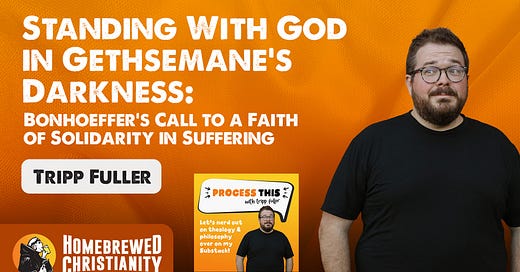


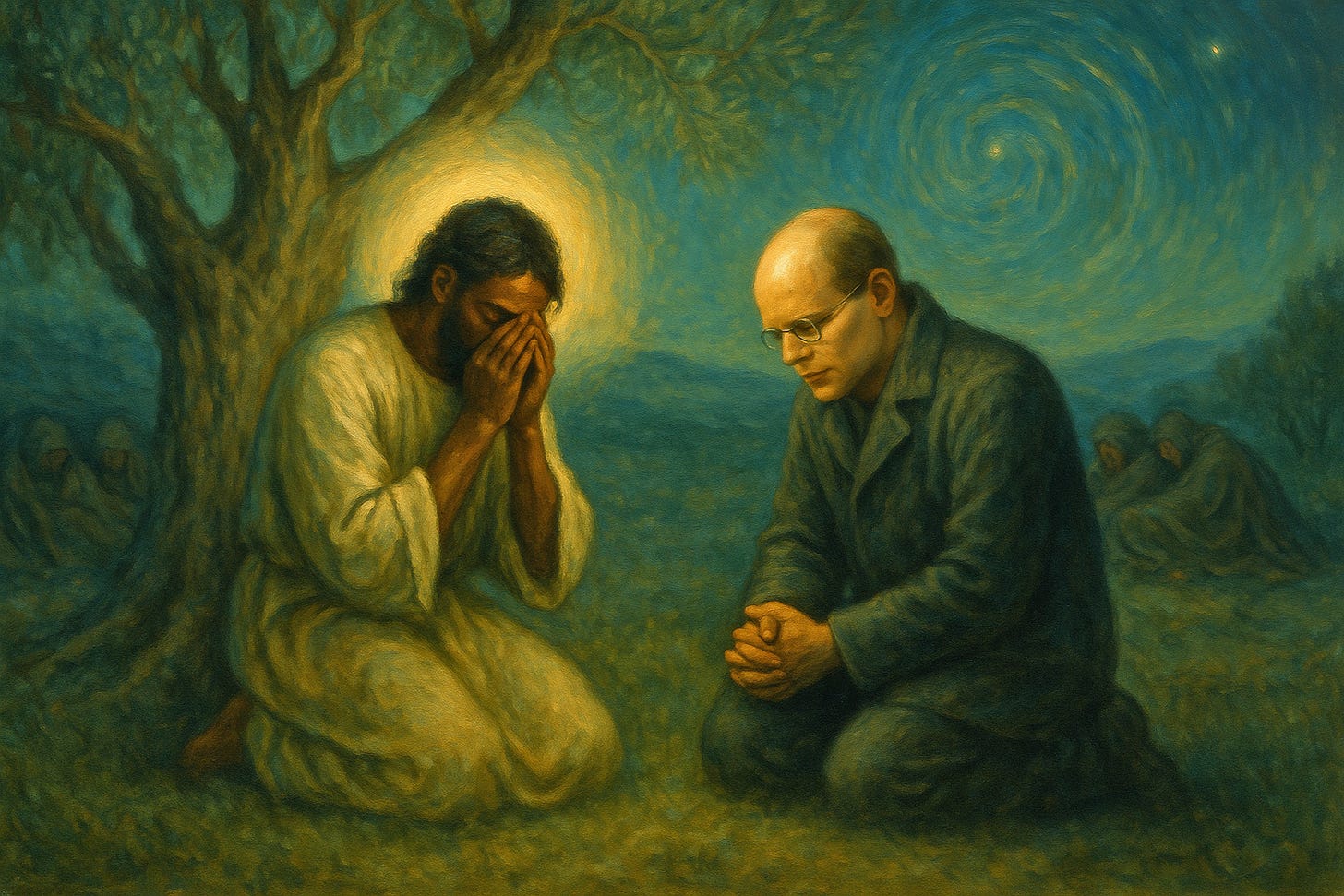



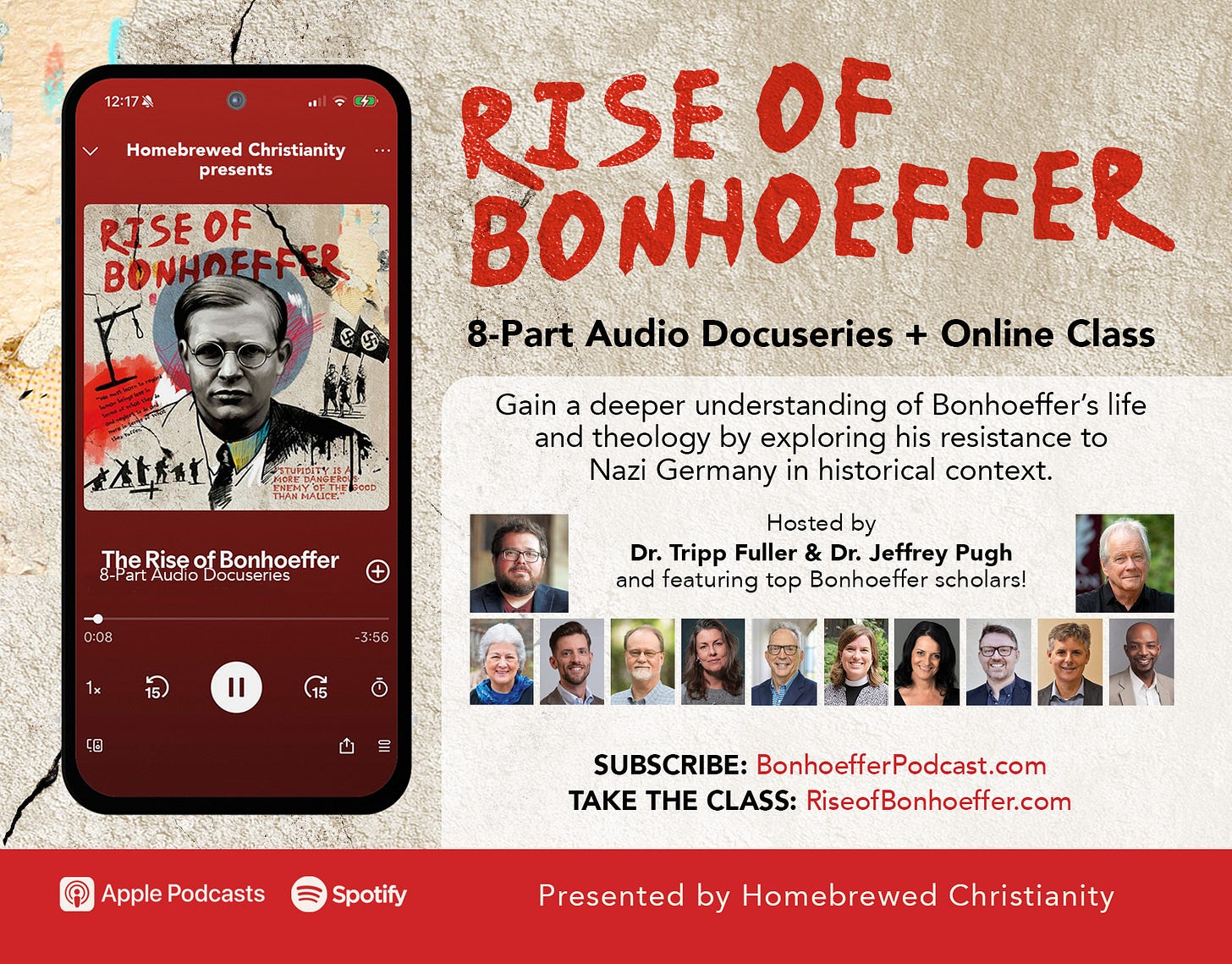
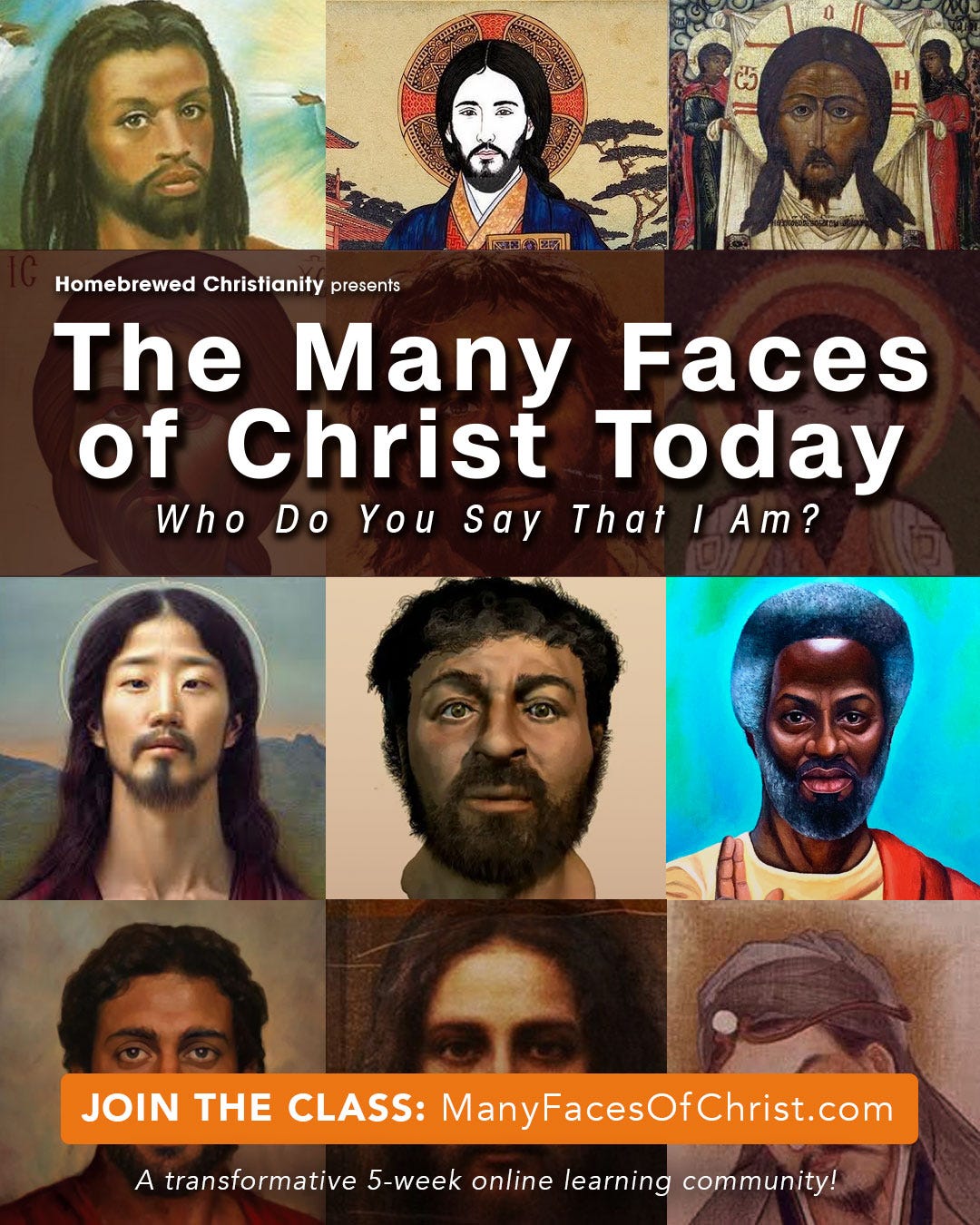
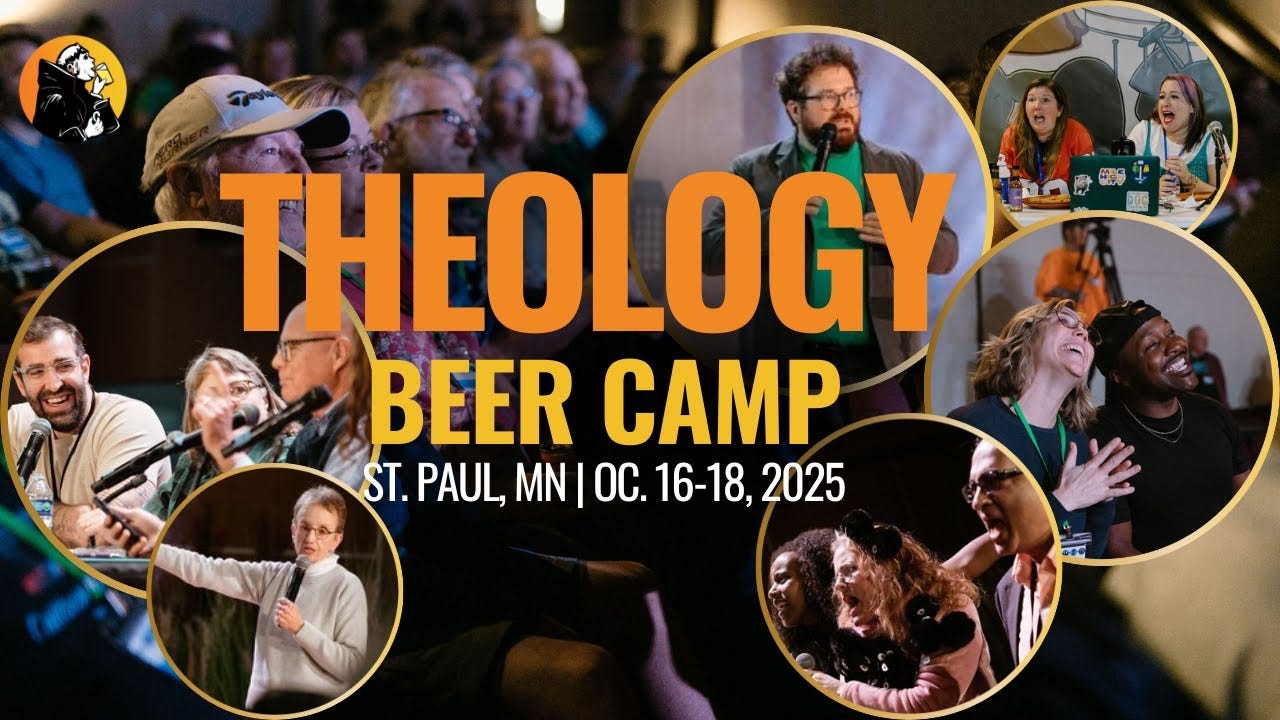




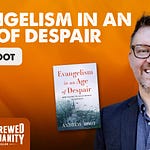
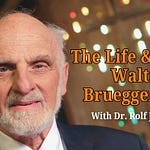



Share this post